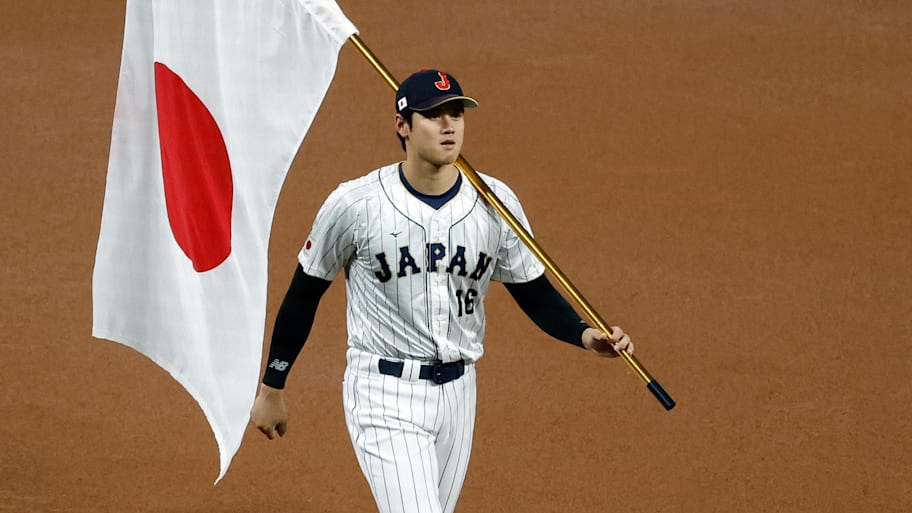ATLANTA — If everyone behaves logically over the next few months, Major League Baseball players will compete at the Los Angeles Olympics in 2028. Of course, that’s a big if.
All sides are incentivized to make this work, and they all know it. The league, which sees dollar signs—and yen signs, and won signs, and maybe even euro signs—wants the exposure. The players want the chance to compete for something even more meaningful than a World Series. And the International Olympic Committee wants—for the first time ever—the best baseball players at its event. Representatives from LA2028 have met with league and union officials here at the All-Star Game to make their case.
Baseball was a full Olympic sport from 1992 through 2008, but major leaguers were never involved—first because their presence violated the IOC amateur policy, and then because the league declined to pause the season to send them. So as leagues in Cuba, Japan and South Korea sent their best players, MLB allowed only minor leaguers and college players to join up. The IOC voted in ’05 to eliminate baseball and softball from the program; IOC president Jacques Rogge cited the lack of major leaguers as the main issue.
But beginning in 2019, IOC rules have allowed host nations to add sports popular with their citizens as one-offs, so Japan brought back baseball for the Tokyo Games, held in ’21, in which major leaguers did not participate, and the United States is expected to do the same in Los Angeles in ’28. In so many ways, this is a perfect fit: They can play at Dodger Stadium; they don’t have to commit to Brisbane in ’32 or beyond; they can slot it in instead of, or perhaps in addition to, the All-Star Game.
So what’s left? The details, of course. How would an Olympic baseball tournament spliced into the middle of the regular season affect the schedule? Who would play on the teams that would qualify for the event, and when would those qualifiers take place? How would the players get to Dodger Stadium and where would they stay? Who would insure the contracts so that if someone gets hurt in Olympic play, their MLB team does not eat the cost? And who is going to break the news to Fox that the league will be watering down its annual MLB jewel event, the All-Star Game, in order to give all its best players to a competitor, NBC?
“Let me define possible,” said commissioner Rob Manfred in a 45-minute press conference with the Baseball Writers of America on Tuesday. “It is possible to play the All-Star Game in its normal spot, having a single break that would be longer but still play 162 games without bleeding into the middle of November. That’s possible. It would require significant accommodations, but it’s possible.”
He added, “I think it’s an opportunity to market the game on a really global stage. I think, obviously, because it’s in the U.S., the logistics of it are easier.”
Well, that sounds pretty good. And what about the players?
Big names such as Phillies first baseman Bryce Harper and Dodgers two-way star Shohei Ohtani have thrown their support behind the idea, with both vowing to play if they get the chance. And they’re not alone.
“Players are interested,” Major League Baseball Players Association executive director Tony Clark during his own BBWAA press conference. “There’s going to need to be—and we’ve had, even, some dialogue while we’ve been here the last few days—a lot of discussion about how it would all work. … In the event that major league players are going to play, what does that mean, what does that look like, and perhaps just as important, what does that mean for those players who aren’t participating?”
Those are all important questions. But this is one of the few times in baseball negotiations that all constituencies agree on something. So there’s no reason they can’t work it out.
More MLB on Sports Illustrated
This article was originally published on www.si.com as MLB Working Towards Allowing Players to Participate in 2028 Olympics.
